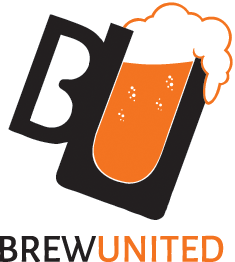Looking for homebrewing gift ideas? Check out our previous gift guides here or here!
Also, if you enjoy BrewUnited, please consider doing your Amazon shopping via our affiliate link!
Also, if you enjoy BrewUnited, please consider doing your Amazon shopping via our affiliate link!
Jump to:
1
Hey guys,
I was talking to the owner of my LHBS recently about water chemistry, and wanted to get some of y'alls opinions. According to him the water report that you get in our area can be inconsistent and inaccurate, so trying to compensate using water salts calculated on Bru'n water can lead to an incorrect pH. I've personally always used "Ozarka Natural Spring" water jugs with 5.2 pH stabilizer, but I'm curious as to how accurate your local water report is, and why it would be so off in my area.. I'm ordering a pH meter soon, so I might try experimenting with both tap water and bottled water to see what works best..
Posted 34 days ago.
My water can vary throughout the year; I use Bru'n Water to help get me close, but sometimes, it's still off.
Depending on where you live, your water can come from more than one source - and sometimes, they will blend those sources. As a result, the water truly can fluctuate a ton.
Posted 34 days ago.
It is situations like this that make me consider getting a RO water filter like /u/Nickosuave311 did and just building profiles.
On the water note, I just had someone on a Facebook group tell me water doesn't matter. So that's fun.
Posted 34 days ago.
That facebook person is a moron. Water makes a massive difference.
Posted 34 days ago.
Our water department puts out monthly water reports, so I build up mine based off of that. What I haven't done yet is to buy all RO water and build from nothing, but there's still a couple minerals I'd need to get first; like pickling lime, epsom salts, and magnesium chloride.
Now that I think of it, my friend likes aquariums and set up a 55 gal drum with a RO filtration system. Maybe I'll see if he wants to let me borrow a few gallons here and there.
Posted 34 days ago.
Honestly, I wanted to give him the benefit of the doubt so I said something along the lines of "For new brewers, not worrying about water too much is great advice, but when you really want to dial in your system and perfect a style, water is a necessity" and he adamantly disagreed. So yeah, he's a moron.
Tracebusta, the RO route is where I'm headed I think. Right now I like my water a lot, but in this whole "wanting to brew a perfect czech pilsner" thing, getting an RO filter is the way to go.
Posted 34 days ago.
I totally agree that for the new brewer, there's no point in worrying about anything aside from tossing in some campden. But to pretend that it doesn't matter at all?
Go make a top shelf stout, a top shelf IPA, and a top shelf pilsner with the exact same water profile, with no additions. Go on, I'll wait.
Posted 34 days ago.
Edited 34 days ago by homebrewdad
With this pH meter I am trying to make that jump.. I brew all grain, and have a fermentation chamber thats controlled by brewpi.. I figured the next step towards improving my process has to be looking at water chemistry..
I have heard people from my old LHBS say that water isn't a big deal.. but these are the same people encouraging me to only pitch one packet of wyeast instead of making a starter.. maybe they have a poor sense of quality beer..
I wouldn't mind brewing myself a stop shelf IPA someday..
Posted 34 days ago.
Edited 34 days ago by blur_yo_face
Hah... "stop shelf".
Posted 34 days ago.
I get a Ward report yearly, so I imagine it's pretty accurate. I'd like to start to start testing it every brew day with a BrewLab kit and then track the water over the course of the year and see what effects that has on the final product. Unfortunately ... $$$$$. To say an ingredient that consists of 90+% of your final product doesn't really matter is asinine. I don't think it's where brewers should start their education, but they definitely need to understand it at some point in order to take control of their beer. If you have all areas of your process down and you're ready to take the next step, start learning about water chemistry. If you haven't perfected your mashing, fermentation, basic recipe formulation ... I'd work a bit more on that first.
Posted 34 days ago.
Don't waste your money on a BrewLab kit. I bought one and regretted it as soon as I read the manual. The accuracy of the measurements is extremely poor, no where near enough to tell you if you water has budged from the Ward labs report.
For example alkalinity is within 10 ppm, within 12 ppm once converted to bicarbonate, the worst is sulfate at within 50 ppm.
blur_yo_face, the reason that you might be off is that your source water alkalinity might vary depending on the season. Here in Toronto it doesn't vary as much since we get all our water from Lake Ontario, if you are somewhere like California you might have a lot of blending going on.
Posted 34 days ago.
Bummer to hear that about BrewLab
Posted 34 days ago.
Thanks for the replies! a lot of this is still new information, and I'm certainly going to read/research more into this.. I do appreciate the feedback though
Posted 34 days ago.
Most municipalities give a water report that includes highs/lows and averages for the values. The levels vary due to changes in the water (rain/snow/drought) during certain times of the year. I use the averages values when making my calculations in Bru'n Water. It seems to get me close enough. My water doesn't vary much during the year and is really soft. It might make more difference in your area. Calling the supervisor of your municipal water treatment plant will garner you a LOT of information. They have to know the variations because many businesses rely on that information (breweries/dialysis centers are two that I am aware of). Call when you have a LOT of time. Perhaps the engineer in charge here is just chatty, but, he could have gone on for hours.......
Posted 34 days ago.
Jump to:
1

